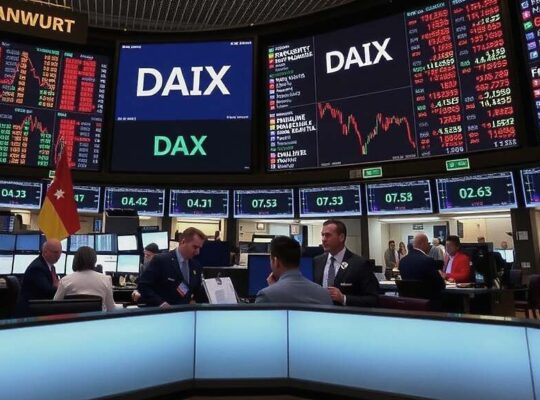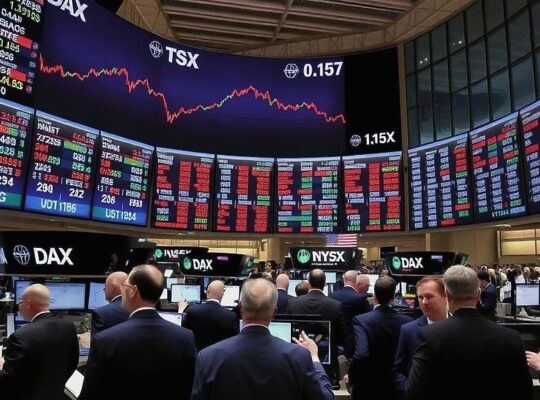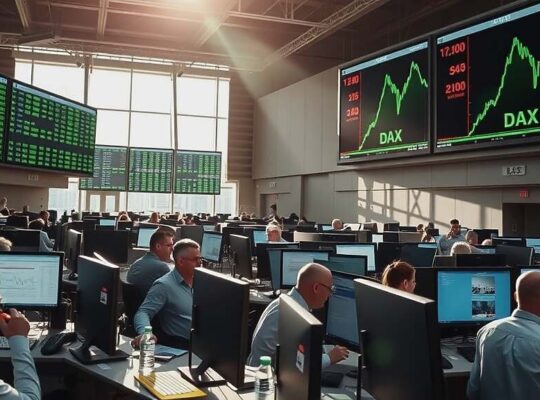A cautious undertone permeated Friday’s trading session on the German stock market, with the DAX index retreating into negative territory amid a broader trend of investors prioritizing defensive sectors. By midday, the benchmark index registered around 24,550 points, a slight decline of 0.2% compared to Thursday’s closing level. This shift reflects a broader investor sentiment characterized by risk aversion as the weekend approaches, potentially driven by anxieties surrounding upcoming economic data releases.
Market analyst Andreas Lipkow characterized the activity as a deliberate repositioning towards sectors perceived as less vulnerable to economic volatility. Companies like Bayer, Vonovia, Beiersdorf and Henkel benefited from this trend, demonstrating the continued appeal of established, stable businesses. Conversely, so-called “hype” stocks-including Siemens Energy, GEA, Scout24 and MTU Aero-experienced selling pressure, indicative of a profit-taking strategy as investors consolidate positions. The performance highlights the ongoing debate about the sustainability of high-growth valuations, particularly as global economic uncertainty persists.
The euro experienced a slight strengthening against the US dollar, trading at 1.1575, a marginal improvement that reflects, perhaps, a renewed if tentative confidence in the European economy. However, the relatively modest appreciation underscores the ongoing fragility of the currency amidst broader geopolitical and monetary policy concerns.
Gold prices also saw a moderate increase, trading at $3,995 per fine ounce, demonstrating its enduring role as a safe haven asset. This slight uptick may be interpreted as a reaction to the prevailing risk aversion driving activity on the stock market and reflects broader investor anxieties.
The decline in oil prices, with Brent crude falling to $64.61 a barrel, presents a potentially concerning signal. The drop, representing a 0.9% decrease, may be attributable to a combination of factors including concerns about slowing global demand and the potential for increased supply, adding another layer of complexity to the current economic climate and potentially impacting energy import strategies for Germany. The market’s sensitivity to US consumer confidence data, anticipated later Friday, signals that the prevailing caution is likely to continue impacting trading behavior in the immediate future.












